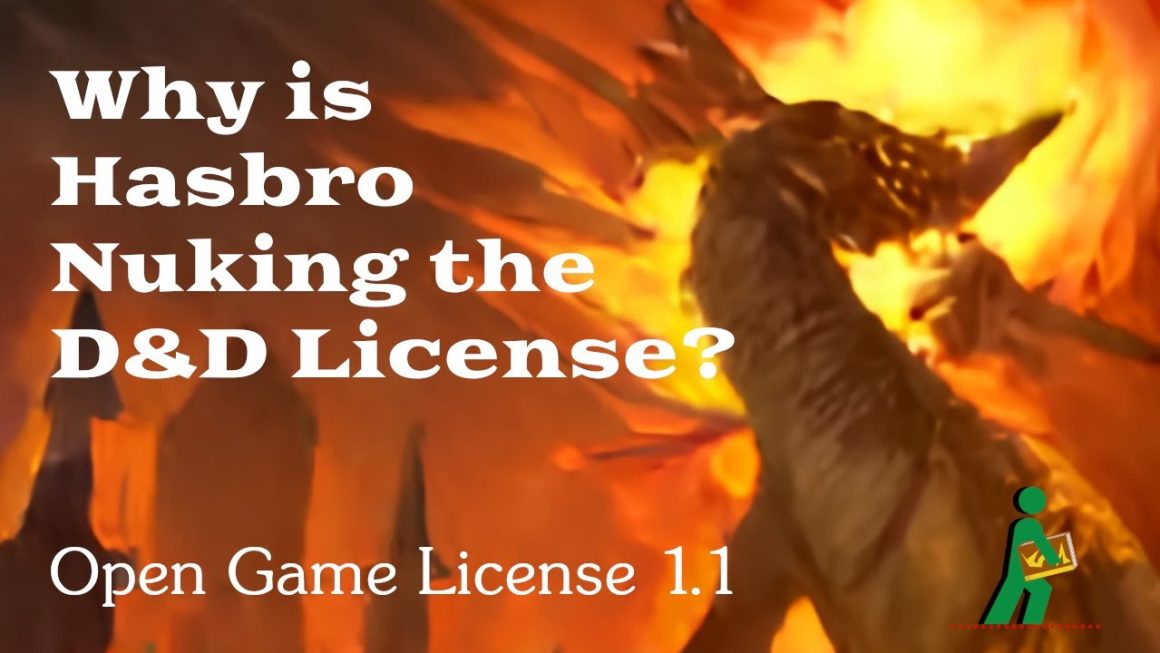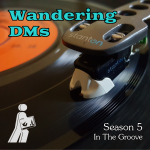
Why is Hasbro Nuking the D&D License? | OGL 1.1 | Wandering DMs S05 E01

Word has leaked that WOTC aims to terminate the OGL license used for 3rd-party D&D-compatible products for the last 20+ over years. Can they do it? Are all existing 3rd-party products about to be made illegal? What can it mean for the hobby and industry going forward?
In August 2022, Wizards of the Coast launched a public playtest of the next version of Dungeons & Dragons under the One D&D initiative. In November 2022, there was reported speculation that the OGL would be discontinued for this new iteration of Dungeons & Dragons based on unconfirmed leaks. In response to the speculation, Wizards of the Coast stated in November 2022: “We will continue to support the thousands of creators making third-party D&D content with the release of One D&D in 2024. While it is certain our Open Game License (OGL) will continue to evolve, just as it has since its inception, we’re too early in the development of One D&D to give more specifics on the OGL or System Reference Document (SRD) at this time”.
Following concerns raised by third-party Dungeons & Dragons creators on the potential changes to the OGL, in December 2022, Wizards of the Coast released additional details on the upcoming OGL 1.1 which will go into effect in 2023. This new license will clarify that it only applies to “printed media or static electronic files (like epubs and PDFs)” and “only covers material created for use in or as TTRPGs”; OGL 1.1 will not cover other content such as video games or virtual tabletops (VTTs). Content creators using OGL 1.1 will be required “to put an official OGL badge on their products”. Revenue related to OGL content must be reported to Wizards of the Coast if that revenue exceeds $50,000 annually; creators who make at least $750,000 in income annually will be required to pay a royalty starting in 2024.
Linda Codega, for Io9 in January 2023, reported on the details from a leaked full copy of the OGL 1.1 including updated terms such as no longer authorizing use of the OGL1.0. Codega explained that while the original OGL granted a “perpetual, worldwide, non-exclusive license” it also included language around authorized versions of the license – “according to attorneys consulted for this article, the new language may indicate that Wizards of the Coast is rendering any future use of the original OGL void, and asserting that if anyone wants to continue to use Open Game Content of any kind, they will need to abide by the terms of the updated OGL, which is a far more restrictive agreement than the original OGL”. The document also states that the intention of the OGL was not “to fund major competitors and it wasn’t intended to allow people to make D&D apps, videos, or anything other than printed (or printable) materials for use while gaming”. In a statement to EN World, Dancey – former VP of Wizard of the Coast and the architect of OGL1.0 – said, “my public opinion is that Hasbro does not have the power to deauthorize a version of the OGL. If that had been a power that we wanted to reserve for Hasbro, we would have enumerated it in the license. I am on record numerous places in email and blogs and interviews saying that the license could never be revoked”.
Wandering DMs Paul Siegel and Dan “Delta” Collins host thoughtful discussions on D&D and other TTRPGs every week. Comparing the pros and cons of every edition from the 1974 Original D&D little brown books to cutting-edge releases for 5E D&D today, we broadcast live on YouTube and Twitch so we can take viewer questions and comments on the topic of the day. Live every Sunday at 1 PM Eastern time.
This description uses material from the Wikipedia article “Open Game License“, which is released under the Creative Commons Attribution-Share-Alike License 3.0.
Thumbnail image courtesy of Craiyon.

